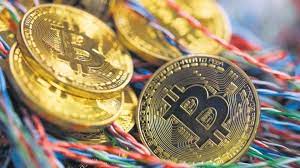Cryptocurrency has taken the world by storm, revolutionizing the way we think about money, investments, and the very concept of finance itself. In a rapidly evolving digital landscape, 虛擬貨幣詐騙 like Bitcoin, Ethereum, and many others have emerged as powerful tools, enabling individuals to take control of their finances, make global transactions faster and cheaper, and even redefine the traditional financial systems. In this article, we’ll delve into the captivating world of cryptocurrency, its origins, its impact on the global economy, and the exciting possibilities it holds for the future.
The Genesis of Cryptocurrency: The concept of cryptocurrency isn’t as new as one might think. It all began with the release of Bitcoin in 2009 by an enigmatic figure known as Satoshi Nakamoto. Bitcoin’s blockchain technology, which serves as a decentralized ledger, was a groundbreaking innovation that allowed for secure, transparent, and immutable transactions. This marked the birth of the first-ever cryptocurrency, setting the stage for an avalanche of digital currencies and tokens that followed.
Diversification and Innovation: As time went on, the cryptocurrency landscape diversified. Numerous altcoins and tokens were created, each with unique features and use cases. Ethereum, for example, introduced smart contracts, enabling decentralized applications to be built on its blockchain. This innovation opened up a world of possibilities beyond simple peer-to-peer transactions. Today, cryptocurrencies serve as not only a means of exchange but also as a foundation for decentralized finance (DeFi), non-fungible tokens (NFTs), and more.
Cryptocurrency’s Impact on Finance: Cryptocurrency has disrupted traditional financial systems in several ways. It has brought financial services to the unbanked and underbanked populations worldwide, making it possible for anyone with an internet connection to access and use financial services. Moreover, cryptocurrencies have made cross-border transactions faster, cheaper, and more efficient, reducing the need for intermediaries like banks and payment processors.
